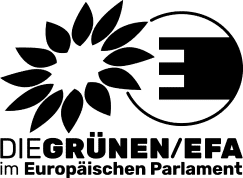As some of you might know, I am a member of the Committee on Constitutional Affairs. Tonight, we will adopt a “Draft opinion on the Conference on the Future of Europe”, which will then be voted upon by all Parliamentarians next week in Strasbourg.
But what is this Conference really about? Who is discussing the future of Europe, and how? And why does this ‘opinion’ matter at all?
Ursula von der Leyen promised to organise a conference on the future of Europe shortly before she was elected President of the European Commission. However, there is a lot of uncertainty regarding what this conference should be about. Interpretations seem to circle around it being a forum for citizens and EU institutions to work together in order to define the future of the continent, potentially even leading to a change in the treaties. Vague…I know.
Since there is so much uncertainty, multiple people in Parliament, the Commission and even in different member states (e.g., France and Germany) are trying to shape this idea according to what they believe makes the most sense – which means a lot of smaller drafts have already been produced.
Now, the text we are preparing tonight in my committee (AFCO) is also rather general and says that the European Parliament supports the idea of holding a conference on the future of Europe. And it outlines some key elements that this conference should entail. For me the most important ones are:
-
Transnational lists and a lead candidate system(Spitzenkandidaten) should be discussed as first results, hopefully within a larger electoral reform, as well as other topics surrounding how the EU can improve how it works.
-
There should be content discussions about topics that citizens actually care about via meaningful, bottom-up participation, and in an inclusive manner – without pre-determined outcomes; Youth should be especially considered within this meaningful participation
-
The conference should lead to making the EU stronger and more unitedand all law-making institutions should see its results as input for real changes, either within the current framework of the treaties, or even through potential Treaty changes
-
An inter-institutional agreementbetween Commission, Council and Parliament should govern that conference and its resulting recommendations.
This opinion is therefore just a first step. Once its adopted, Parliament will continue to think about the best structure for this conference, and will then negotiate with the Commission and the Council (member state representatives) on how to make it work.
From Volt’s perspective, we are fighting for a few very simple goals within this process:
-
Ensuring that there is a real and meaningful debatewith citizens across Europe, where their voice actually matters!
-
Ensuring that decisions within the conference plenary are taken via a democratic and inclusive process, such that there are no backroom political deals when we talk about the future of our continent!
-
Ensuring that the details of the conference are thoroughly thought through, such that it does not fail due to lack of or poor organisation.
Currently, our main purpose is to ensure there is a setup, a framework that makes sense. But soon, we will also campaign for this conference across the continent, and ensure that you are part of it. We want you to be there when your future is being discussed!
Keep you posted!
Damian

